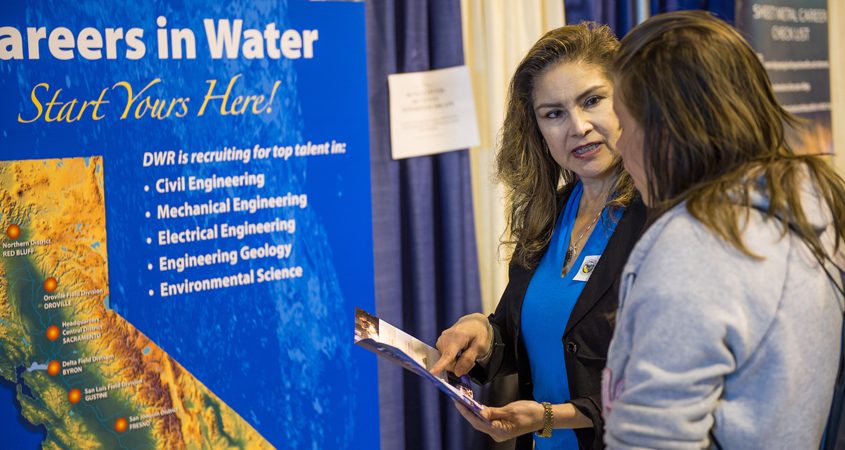Waterworks Management Degree Program Supports Career Growth
Water and wastewater industry employees can advance their professional careers with a specialty degree to help them achieve their goals. The industry offers vast opportunities in engineering, operations, finance, public affairs, human resources, administration and information technology.
The Bachelor of Public Administration (BPA) degree with a concentration in Waterworks Management is offered by National University in partnership with Cuyamaca College. Monir Masoud, Director of Community College Pathways at National University, said scholarship opportunities can help reduce the cost of the degree program by as much as 46%.
Masoud said prospective students with an associate’s degree from any California community college can complete the degree using the one course per month format in 17 months, which is ideal for working professionals following a nontraditional educational path.
“We have a support system that we walk step by step with students,” said Masoud. “Students start with an enrollment advisor, then academic financial aid, and faculty.”
Students can also stretch out the courses with breaks when needed and continue to progress toward their degree at their own pace. Three students have completed the degree’s course requirements to date.
Value as a career advancement tool

Water industry professionals can accelerate their career advancement through higher education. Photo: National University
The waterwork management degree, launched 18 months ago, was developed in collaboration with regional employers and driven by growing demands for skilled career professionals in the water and wastewater industry.
Graduates will be able to address the issues and challenges facing water and wastewater agencies at the state, regional, and local levels, including governing requirements and regulatory compliance, while employing water management best practices.
“I would tell my employees go get schooling because they become a change agent, said Masoud.”Most of our organizations, especially in California, are doing a great job upskilling their employees. And we have this tuition reimbursement ready for them. Employers can retain and maintain their workforce in this tough market we are in.”
Demand for skilled water and wastewater professionals

California Dept. of Water Resources staff services manager Norma Alvarado talks with students at a water industry career fair showcasing a broad array of options. Photo: Kelly M. Grow/California Department of Water Resources
The water and wastewater industry’s rapidly growing demand for highly skilled professionals shows no signs of slowing in the coming years. Impending retirements will create a need to fill California’s 12,000 to 20,000 water and wastewater jobs. Many of these positions require a bachelor’s degree, such as the National University BPA degree.
As seasoned leaders retire, water and wastewater agencies struggle to fill job vacancies requiring a focused bachelor’s degree. Students earning the new degree will complete National University’s four-course concentration of upper-division courses studying water and waterworks management and leadership, water law and compliance, and human resources and labor law.
Degree program well suited for military veterans
National University offers all BPA courses online. Students can begin the BPA program at any time.
The BPA waterworks concentration is particularly well suited for veterans using their GI benefits to further their education. Veterans are eligible to apply their military experience and education toward certifications in the water industry.



